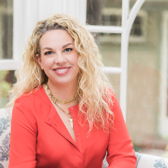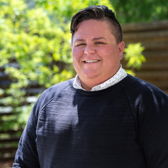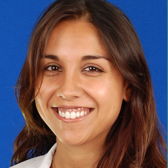
Yael Koening, LCSW
Deputy Director, Children Youth and Families, San Diego County Behavioral Health Services
Session
Session Details
01 – Welcome Remarks & Introductions
Hybrid Session
Speaker:
Yael Koening, LCSW
Terra Lawson-Remer
San Diego County Board of Supervisor
Session
Session Details
02 – Convening Presentation
Hybrid Session
Speaker:
Terra Lawson-Remer

Anya Kamenetz Award-Winning Journalist
Acclaimed Author; Future of Work, Education and Technology Expert
An award-winning, former correspondent for National Public Radio, Anya Kamenetz is a futurist with a passion for the complexities of how we learn, work and live in a rapidly changing world. As the lead education reporter for NPR, Kamenetz coordinated the public broadcaster’s education coverage online and on-air. Previously she covered technology, innovation, sustainability, and social entrepreneurship as a staff writer for Fast Company magazine. Kamenetz’s most recent book is The Stolen Year: How COVID Changed Children’s Lives, and Where We Go Now (August 2022).
Session
Session Details
Keynote:01 – Lessons Learned from the Stolen Year(s): How to Build Better Systems of Caring for Children and Families
Hybrid Session
Speaker:
Anya Kamenetz Award-Winning Journalist
Description:
The pandemic kicked off one of the biggest social experiments in history, and the long-term implications for students, parents, employers, and employees are profound. With a futurist’s eye for what comes next, Anya Kamenetz considers the impact on the K-12 education system, on colleges, business, and work. Kamenetz considers the role of technology and lessons learned and traces the many links between the pandemic, the “Great Resignation,” and the growing realization that building diverse, equitable and inclusive working environments is critical to recruitment and retention, economic growth and a more resilient workforce.
Learning Objective:
- Comprehensively describe 3 impacts of the pandemic as they especially affected children and youth, and describe 3 items necessary for the recovery process
- List five ways the pandemic disproportionately impacted children and youth, particularly those from marginalized backgrounds
- Name three specific mental health indicators that worsened during the pandemic
- Describe 5 strategies to promote resilience and post-traumatic growth

Dr. Tina Bryson Ph.D.
Best-selling author
Session
Session Details
Keynote:02 – The Power of Showing Up
Hybrid Session
Speaker:
Dr. Tina Bryson Ph.D.
Description:
In this talk, Dr. Bryson will share the ideas from her book, THE POWER OF SHOWING UP (co-authored with Dr. Dan Siegel). She’ll discuss the crucial findings of decades of robust cross-cultural attachment research, along with the latest thinking about the nervous system and the lens of interpersonal neurobiology–with a special emphasis on neuroplasticity and the changing brain–in a way that’s clear, interesting, and immediately practical. Dr. Bryson will also share stories and simple strategies for honoring the Four S’s (helping clients of all ages feel secure, seen, soothed, and safe) effectively in professional-client interactions, as well as how she uses brain science in her own practice to help clients see things differently and feel hope about achieving lasting change in their lives. Attendees will leave with a new framework for understanding their clients, and a lens for finding new ways to increase their clients’ emotional regulation and capacity in relationships.
Learning Objective:
- Identify two ways to increase clients’ capacity for regulation through co-regulation in relationship.
- Name 3 new strategies for supporting clients’ long-term wellbeing, while navigating uncertain times and juggling their own mental health and safety.

Dr. Janina Scarlet, Ph.D.
Session
Session Details
A1 – Using Creativity and Meaning-Making to Cope with Loneliness and Burnout
Hybrid Session
Speaker:
Dr. Janina Scarlet, Ph.D.
Description:
In the light of the recent global events – wars, violence, the rapidly growing mental health crisis, many clients are struggling with mental exhaustion, while many therapists are struggling with emotional and physical burnout. In addition, the United Stated Surgeon General has recently shed light on the growing loneliness problem in the United States, which he refers to as the silent epidemic. This breakout session will focus on how we can implement creativity practices into therapy, as well as into our own practices to reduce burnout and the feelings of loneliness, as well as to help our clients discover a sense of purpose and meaning making.
Learning Objectives:
- Describe 3 detrimental impacts of loneliness on people’s mental and physical health
- Describe 2 ways to incorporate creativity exercises into treatment to help clients reduce loneliness and burnout
- Describe 3 techniques to incorporate creativity exercises to reduce our own burnout as mental health professionals

Nadine A. Kassity-Krich, MBA, BSN, RN, PHN, CNL
Session
Session Details
A2 – First Heal Thyself -Tips for Surviving in Healthcare
Hybrid Session
Speaker:
Nadine A. Kassity-Krich, MBA, BSN, RN, PHN, CNL
Description:
First Heal Thyself: Tips to support the caretaker in navigating and preserving their soulfulness in the healthcare industry
Learning Objectives:
- Identify one to three components from your practice that would be beneficial to change/modify
- Name one to three strategies or methods that are working well in your current practice
- Identify one practice to support mental and physical well being in the healthcare setting

Bixby Marino-Kibbee
Program Director – Center for Gender Affirming Care Master of Social Work
Session
Session Details
A3 – Families in Transition: A Family Systems Approach to Gender Affirming Care
Hybrid Session
Speaker:
Bixby Marino-Kibbee

Dr. Kelsey Bradshaw, Ph.D
Session
Session Details
B1 – Evidence-Based Intervention and Family Engagement – Best Practices for the Treatment of Adolescent Substance Use
Hybrid Session
Room:
H – I
Speaker:
Dr. Kelsey Bradshaw, Ph.D, Dr. Nancy McGinley MD, MPH
Description:
Discussion of an evidence-based therapy for treatment of substance use disorders using family-based therapy (e.g., Family Behavior Therapy) and integration of medication assisted treatment. Review of research on efficacy of discussed treatments. Modeling of a family-based intervention from FBT. Review of medication assisted therapy for adolescent substance use including benefits and common medications used. Overview of MAT for adolescent substance use including most common medications used with a review of potential benefits and side effects.
Learning Objectives:
- Identify 3 methods for engagement and integration of family into the treatment of adolescent substance use disorders
- Understand and implement at least one FBT intervention
- Name 3 benefits of MAT and the utility of integrating into treatment

Dr. Nancy McGinley MD, MPH
Nancy R. McGinley, MD, MPH, is a board-certified psychiatrist and current chief fellow of UCSD’s Child and Adolescent Psychiatry Fellowship Program. She was recently selected as an AAAP/SAMHSA REACH Scholar and has been accepted to UCSD’s Addiction Psychiatry Fellowship (2023-2024). Dr. McGinley is most passionate about working to end the stigma that often surrounds mental illness in ethnic and minority communities. She also has a special interest in the intersection between childhood trauma and early substance use in adolescents.
Session
Session Details
B1 – Evidence-Based Intervention and Family Engagement – Best Practices for the Treatment of Adolescent Substance Use
Hybrid Session
Room:
H – I
Speaker:
Dr. Kelsey Bradshaw, Ph.D, Dr. Nancy McGinley MD, MPH
Description:
Discussion of an evidence-based therapy for treatment of substance use disorders using family-based therapy (e.g., Family Behavior Therapy) and integration of medication assisted treatment. Review of research on efficacy of discussed treatments. Modeling of a family-based intervention from FBT. Review of medication assisted therapy for adolescent substance use including benefits and common medications used. Overview of MAT for adolescent substance use including most common medications used with a review of potential benefits and side effects.
Learning Objectives:
- Identify 3 methods for engagement and integration of family into the treatment of adolescent substance use disorders
- Understand and implement at least one FBT intervention
- Name 3 benefits of MAT and the utility of integrating into treatment

Dr. Willa Marquis Ph.D.
Session
Session Details
B2 – Exposure-Based Therapy for Childhood Anxiety: Why It Works and How to Use It
Hybrid Session
Speaker:
Dr. Willa Marquis Ph.D.; Dr. Sara Conley Ph.D.
Description:
Typical supportive therapy can prove ineffective, or even harmful, in treating children and adolescents with anxiety-based conditions. We will review the cycle of anxiety and discuss use of exposure therapy within the family system as an effective tool for reducing anxiety.
Introduce anxiety-based conditions and how they present in children and adolescents.
-Disorder-specific and transdiagnostic features
-Role of family accommodations in maintaining disorders
Review both helpful and unhelpful treatment strategies
-Why typical support, avoidance, and reassurance maintain anxiety
-Introduction to exposure-based treatment for anxiety
-Introduce core exposure therapy concepts and tips for application
-Hierarchy Development
-Family Engagement
Learning Objectives:
- Identify 2 components of the cycle of anxiety-based disorders, including how anxiety symptoms worsen over time and impact daily functioning
- Describe three behavioral therapeutic strategies that can be utilized to address anxiety-based conditions
- Name 3 aspects of the role of family accommodation as it relates to the maintenance of anxiety-based conditions

Dr. Sara Conley Ph.D.
Session
Session Details
B2 – Exposure-Based Therapy for Childhood Anxiety: Why It Works and How to Use It
Hybrid Session
Speaker:
Dr. Willa Marquis Ph.D.; Dr. Sara Conley Ph.D.
Description:
Typical supportive therapy can prove ineffective, or even harmful, in treating children and adolescents with anxiety-based conditions. We will review the cycle of anxiety and discuss use of exposure therapy within the family system as an effective tool for reducing anxiety.
Introduce anxiety-based conditions and how they present in children and adolescents.
-Disorder-specific and transdiagnostic features
-Role of family accommodations in maintaining disorders
Review both helpful and unhelpful treatment strategies
-Why typical support, avoidance, and reassurance maintain anxiety
-Introduction to exposure-based treatment for anxiety
-Introduce core exposure therapy concepts and tips for application
-Hierarchy Development
-Family Engagement
Learning Objectives:
- Identify 2 components of the cycle of anxiety-based disorders, including how anxiety symptoms worsen over time and impact daily functioning
- Describe three behavioral therapeutic strategies that can be utilized to address anxiety-based conditions
- Name 3 aspects of the role of family accommodation as it relates to the maintenance of anxiety-based conditions

Dr. Drea Letamendi Ph.D.
Session
Session Details
B3 – Stories Matter: Building Resilience, Consciousness, and Empathy through Entertainment Media
Hybrid Session
Speaker:
Dr. Drea Letamendi Ph.D.
Description:
Stories are a part of our psychological fabric. During times of crisis, we turned to entertainment media to comfort our anxieties, manage our fears, and affirm our hopes. The emotionally charged connections we form with film, television, and gaming can help us harness essential insights as healers, stewards, and leaders in our practice. Dr. Drea will delve into the powerful phenomenon of “mediated others” and share how fiction and fandom help mental health providers gain insight, emotional growth, and self-development when facing multiple challenges in their practice. Additionally, Dr. Drea will share effective strategies for individuals and organizations who want to implement compassionate self-care, cultivate belongingness, and create happier and more fulfilling work environments.
Learning Objectives:
- Name 2 benefits of media use related to emotional processing, self awareness, and interpersonal effectiveness
- Identify two connections between storytelling and professional development through the parasocial engagement model
- Identify three approaches to help reduce the effects of trauma in their work (war, global, pandemic, vicarious, etc.) through a shared, collective liberation model.

Session
Session Details
03 – Closing Remarks
Hybrid Session
Speaker:
Charmi Patel Rao, MD, DFAACAP; Paven Lidstone, MD, PhD

Paven Lidstone, MD, PhD
Assistant Clinical Professor UCSD Department of Psychiatry
Session
Session Details
03 – Closing Remarks
Hybrid Session
Speaker:
Charmi Patel Rao, MD, DFAACAP; Paven Lidstone, MD, PhD